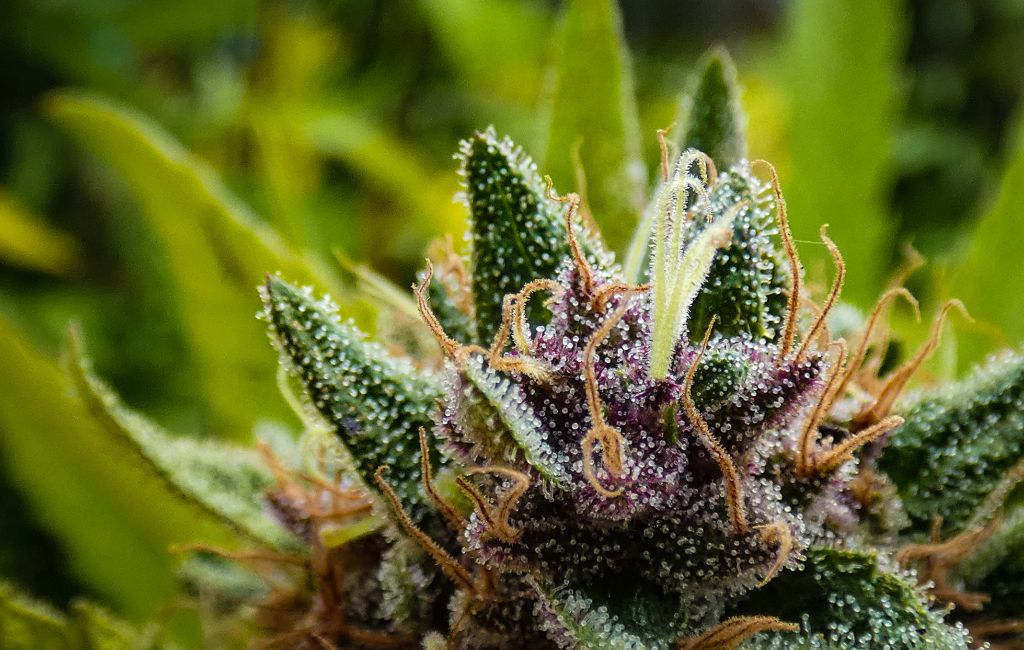THCa Flower: Raw Cannabis

THCa Flower: Exploring the Benefits of Raw Cannabis
Raw cannabis, particularly THCA flower, has been gaining attention for its potential health benefits. Unlike its more famous counterpart, THC, THCA (tetrahydrocannabinolic acid) is non-psychoactive, meaning it doesn’t produce the “high” associated with cannabis use. This article delves into the benefits of THCA flower, supported by research, examples, and case studies.
Understanding THCa
THCA is a cannabinoid found in raw and live cannabis. It is the precursor to THC, which means it converts to THC when exposed to heat through a process called decarboxylation. This conversion is what typically happens when cannabis is smoked or vaporized. In its raw form, THCA does not have psychoactive effects, making it an attractive option for those seeking the therapeutic benefits of cannabis without the high.
How THCA Works
THCA interacts with the body’s endocannabinoid system, which plays a role in regulating various physiological processes such as pain, mood, and appetite. Unlike THC, THCA does not bind directly to CB1 receptors in the brain, which is why it doesn’t produce psychoactive effects. Instead, it influences other receptors and enzymes, contributing to its potential health benefits.
Health Benefits of THCA Flower
Research and anecdotal evidence suggest that THCA may offer a range of health benefits. Here are some of the key areas where THCA flower shows promise:
- Anti-inflammatory Properties: Studies have shown that THCA has anti-inflammatory effects, which can be beneficial for conditions such as arthritis and other inflammatory diseases.
- Neuroprotective Effects: THCA may help protect brain cells from damage, making it a potential treatment for neurodegenerative diseases like Alzheimer’s and Parkinson’s.
- Anti-emetic Properties: THCA has been found to reduce nausea and vomiting, which can be particularly helpful for patients undergoing chemotherapy.
- Antioxidant Benefits: As an antioxidant, THCA can help combat oxidative stress, which is linked to various chronic diseases.
Case Studies and Research
Several studies and case reports highlight the potential benefits of THCA. For instance, a study published in the British Journal of Pharmacology found that THCA exhibited significant anti-inflammatory properties in animal models. Another study in the Journal of Neuroimmune Pharmacology suggested that THCA could protect against neurodegenerative diseases by reducing inflammation and oxidative stress in the brain.
In a notable case, a patient with severe epilepsy reported a significant reduction in seizure frequency after incorporating raw cannabis juice, rich in THCA, into their diet. This case underscores the potential of THCA as a therapeutic agent for epilepsy and other seizure disorders.
How to Use THCA Flower
There are various ways to incorporate THCA flower into your wellness routine. Here are some popular methods:
- Raw Juicing: One of the most common ways to consume THCA is by juicing raw cannabis leaves and flowers. This method preserves the THCA content and allows for easy absorption.
- Topical Applications: THCA-infused creams and balms can be applied directly to the skin to target localized pain and inflammation.
- Tinctures and Oils: THCA tinctures and oils can be taken sublingually (under the tongue) for quick absorption into the bloodstream.
- Capsules: THCA capsules offer a convenient way to consume a precise dose of THCA without the need for preparation.
Dosage and Safety
When starting with THCA, it’s advisable to begin with a low dose and gradually increase it based on your body’s response. While THCA is generally considered safe, it’s always best to consult with a healthcare professional, especially if you have underlying health conditions or are taking other medications.
Legal Considerations
The legal status of THCA varies by region. In some areas, raw cannabis and THCA products are legal for medical or recreational use, while in others, they may be restricted or prohibited. It’s important to be aware of the laws in your area before purchasing or using THCA flower.
Conclusion
THCA flower offers a promising alternative for those seeking the therapeutic benefits of cannabis without the psychoactive effects. With its potential anti-inflammatory, neuroprotective, anti-emetic, and antioxidant properties, THCA is gaining recognition in the medical community. As research continues to uncover its benefits, THCA may become a valuable addition to various treatment protocols. Whether through raw juicing, topical applications, tinctures, or capsules, there are multiple ways to incorporate THCA into your wellness routine. Always consult with a healthcare professional to determine the best approach for your individual needs.